Durian, known as the "king of fruits," is a famous tropical fruit in Southeast Asia, especially in Vietnam, Thailand, Malaysia, and Indonesia. Durian has a hard, spiky shell and a distinctive aroma that not everyone finds pleasant. However, for those who love it, durian is an essential delicacy.
Characteristics of Durian
- Shape: Durian is oval or round in shape, with an outer shell that is green or brown.
- Flesh: The flesh of durian is bright yellow or red, soft, and creamy.
- Aroma: Durian has a very distinctive aroma, which may be unpleasant to some but is highly appealing to those who enjoy it.
Nutritional Content
Durian is a highly nutritious fruit, rich in vitamins, minerals, and beneficial plant compounds. Below is the nutritional content in 250 grams of fresh durian:
- Calories: 357 kcal
- Fiber: 9 grams
- Carbohydrates: 66 grams
- Fat: 13 grams
- Protein: 4 grams
In addition, durian contains many important vitamins and minerals, such as:
- Vitamin C: 80% Daily Value (DV)
- Vitamin B6: 38% DV
- Thiamine (Vitamin B1): 61% DV
- Potassium: 30% DV
- Manganese: 39% DV
- Riboflavin (Vitamin B2): 29% DV
- Folate: 22% DV
- Niacin (Vitamin B3): 13% DV
- Copper: 25% DV
- Magnesium: 18% DV
Durian is not only delicious but also brings many health benefits:
- Boosts Immune System: With its high vitamin C content, durian helps strengthen the immune system and protect the body against infections.
- Improves Digestion: The fiber in durian aids in improving digestive function and preventing constipation.
- Increases Energy: With its high carbohydrate content, durian provides abundant energy for the body.
- Supports Heart Health: The potassium in durian helps regulate blood pressure and supports cardiovascular health.
How to Use Durian
Durian can be used in various dishes, ranging from fresh consumption, making ice cream, desserts, to being prepared in savory dishes. Both the flesh and seeds of the durian are edible; however, the seeds need to be cooked before use.


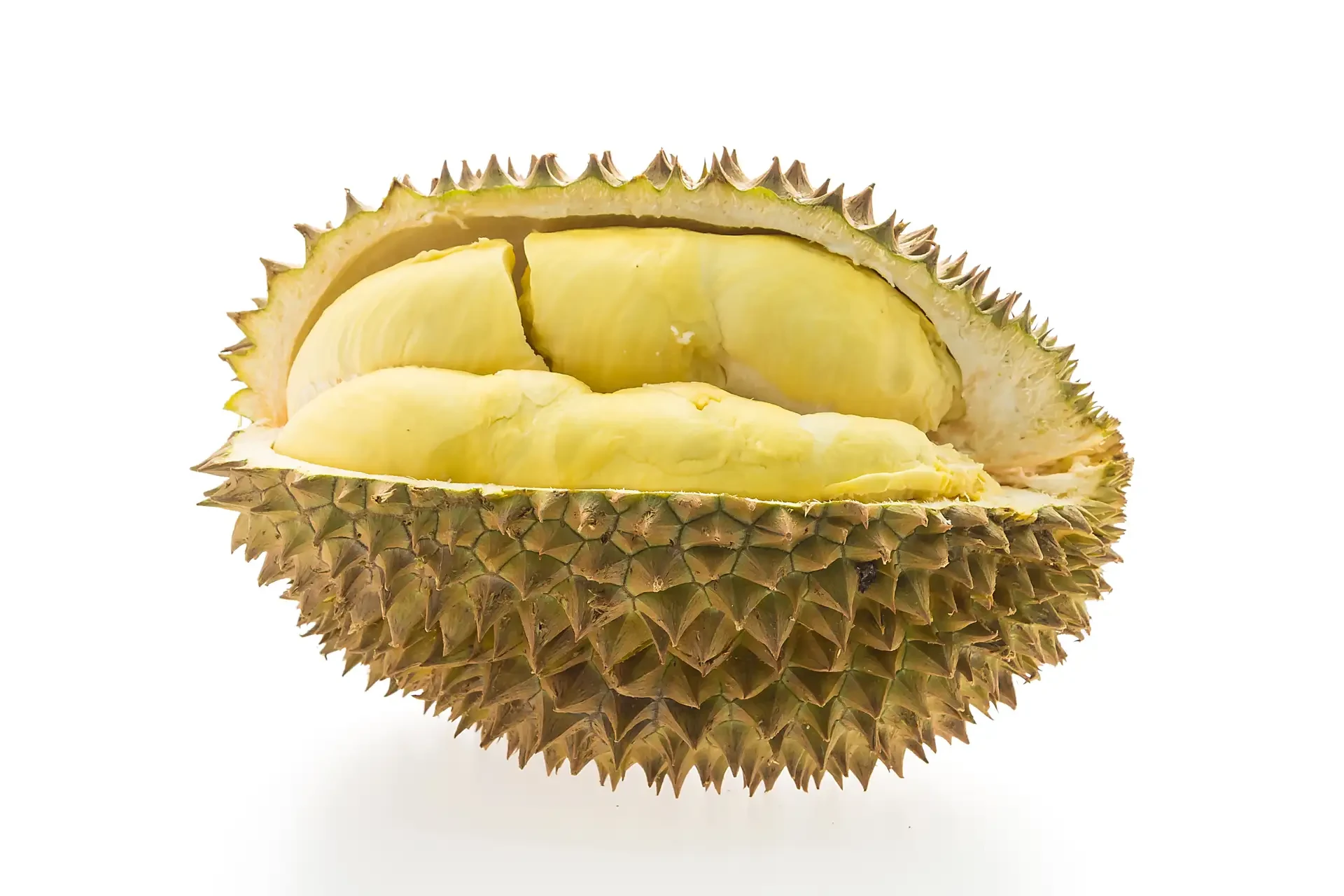
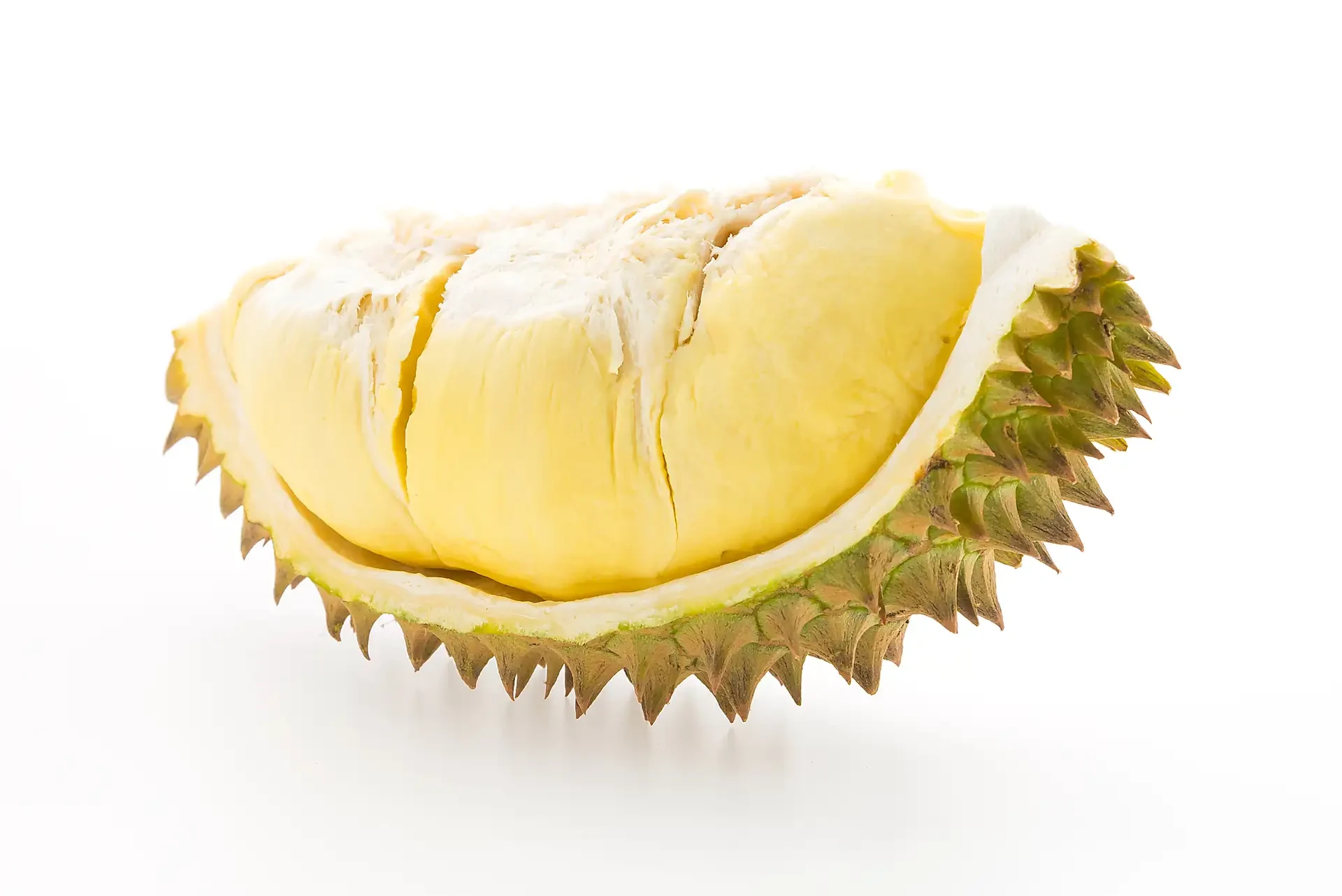
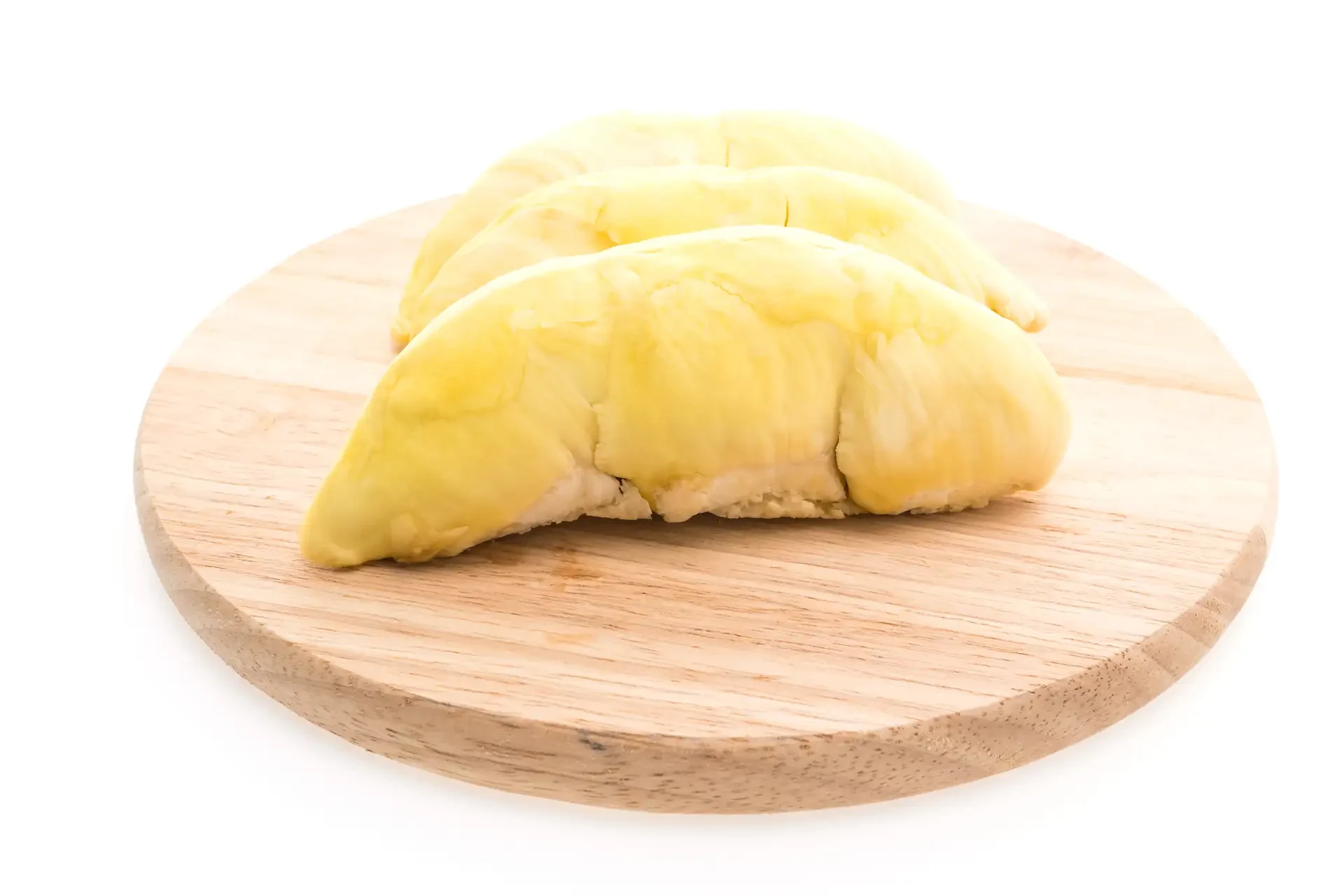
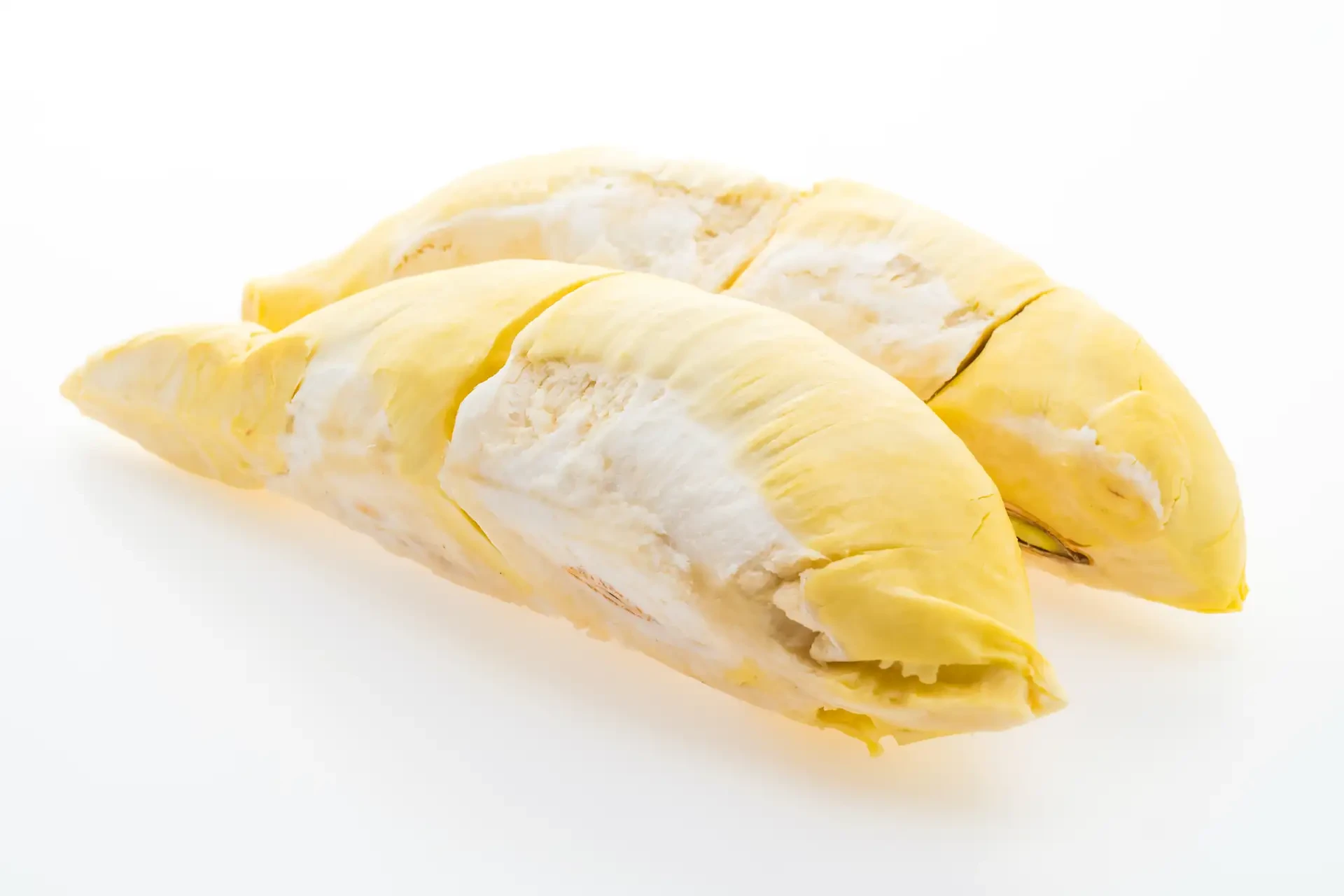
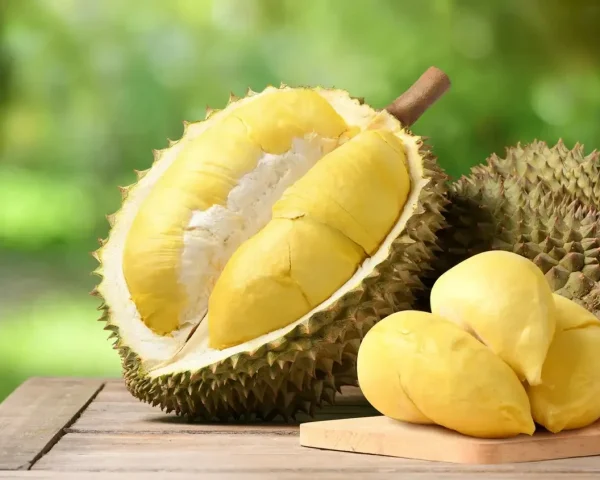







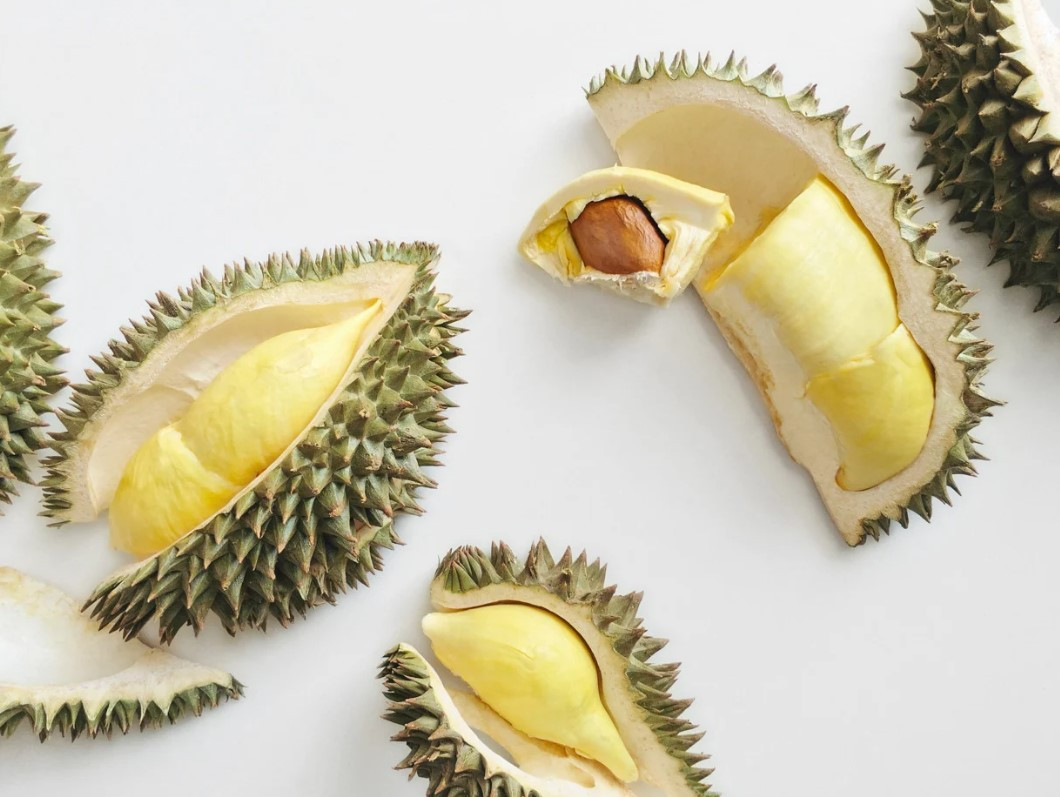


bitos_ad –
Durian is very high quality